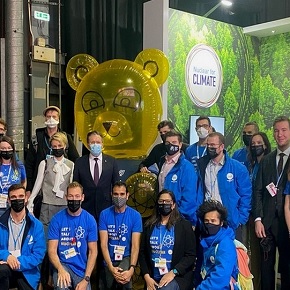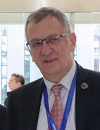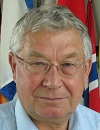 |
||
|
CNNC Boao International Nuclear Medicine Center opens door to yttrium-90 resin microsphere treatment CNNC, PUBLISHED 05.12.2021 China's first liver cancer clinical treatment operation using yttrium-90 resin microspheres was successfully conducted on Sept 28 by the China National Nuclear Corporation (CNNC) Boao International Nuclear Medicine Center at the Boao Super Hospital in Boao Lecheng International Medical Tourism Pilot Zone, South China's Hainan province. On Nov 25 and 26, another three patients with liver cancer were successfully treated. All the four patients treated so far with yttrium-90 resin microspheres have been discharged from the hospital, signaling that the era of yttrium-90 resin microsphere conventional treatment has begun. In treating these four cases, CNNC Med and China Isotope & Radiation Corporation (CIRC) of CNNC gave full play to the synergistic advantages of the nuclear medicine industry chain of CNNC by working together to introduce and transport yttrium-90 resin microspheres and provide nuclear medicine diagnosis and treatment services and radiation protection to ensure the success of the operations. CNNC Boao International Nuclear Medicine Center, a collaboration between CNNC Med and Boao Super Hospital, and Prof. Dong Jiahong's team from Tsinghua University, collaborated closely to strictly ensure the quality of the operation process. The patients responded well. Yttrium-90 resin microspheres are an accurately targeted "super nuclear bomb". Doctors can accurately manipulate yttrium-90 resin microspheres to carry out selective internal radiotherapy of liver tumors and down-staging treatment or potential radical treatment for patients with advanced liver cancer. Yttrium-90 resin microspheres have become a new tool for China to treat liver cancer and allow the country's liver cancer patients to receive international state-of-the-art treatment without going abroad. The first yttrium-90 resin microsphere treatment case gained wide attention, with a large number of patients making inquiries. To meet patients' demand, hospitals within the CNNC system are planning to open an yttrium-90 resin microsphere clinic. In the future, the CNNC Boao International Nuclear Medicine Center will keep following internationally advanced isotope diagnosis and treatment drugs and technologies and continue to cooperate with medical institutions in Lecheng to accelerate the import of such drugs as yttrium-90 glass microspheres and lutetium-177 and iodine-131 so that more Chinese cancer patients can benefit from the world's modern nuclear medicine technologies. Topics: Asia, China, Nuclear medicine Other news: The second Chinese HTGR came out for first criticality The Shidao Bay-1 unit consists of two HTR-PM reactors combined with a common 211 MWe turbine. Construction of Akkuyu NPP Unit 3 Begins A ceremony commemorating the start of Unit 3 construction was held at the site of the first Turkish nuclear power plant Akkuyu. TVEL Elemash Machine-building plant launches new manufacturing site for CFR-600 fabrication The dummy fuel bundles for CFR-600 are already manufactured for testing. |
Hero of the day 
ROSATOM delegation takes part in the 26th UN Climate Change Conference in Glasgow ROSATOM took part in the 26th UN Climate Change Conference of the Parties (COP26), held in Glasgow; the event ended on 12 November 2021. The large international conference brought together about 25,000 people, including heads of state and heads of government from more than 120 countries. INTERVIEW
Vladimir Kriventsev OPINION
Victor Murogov |

